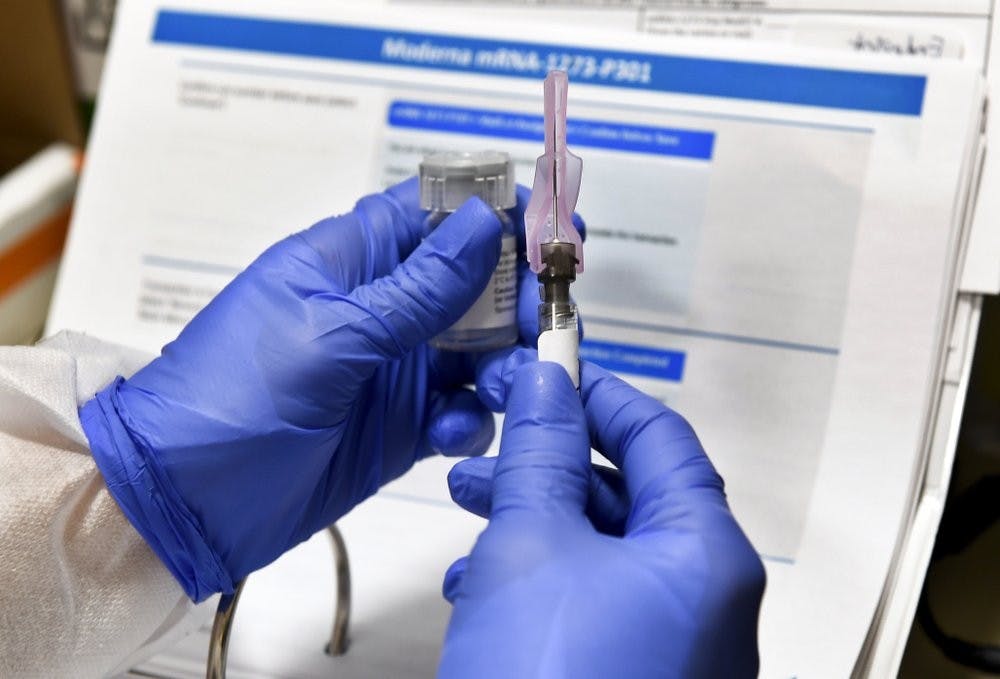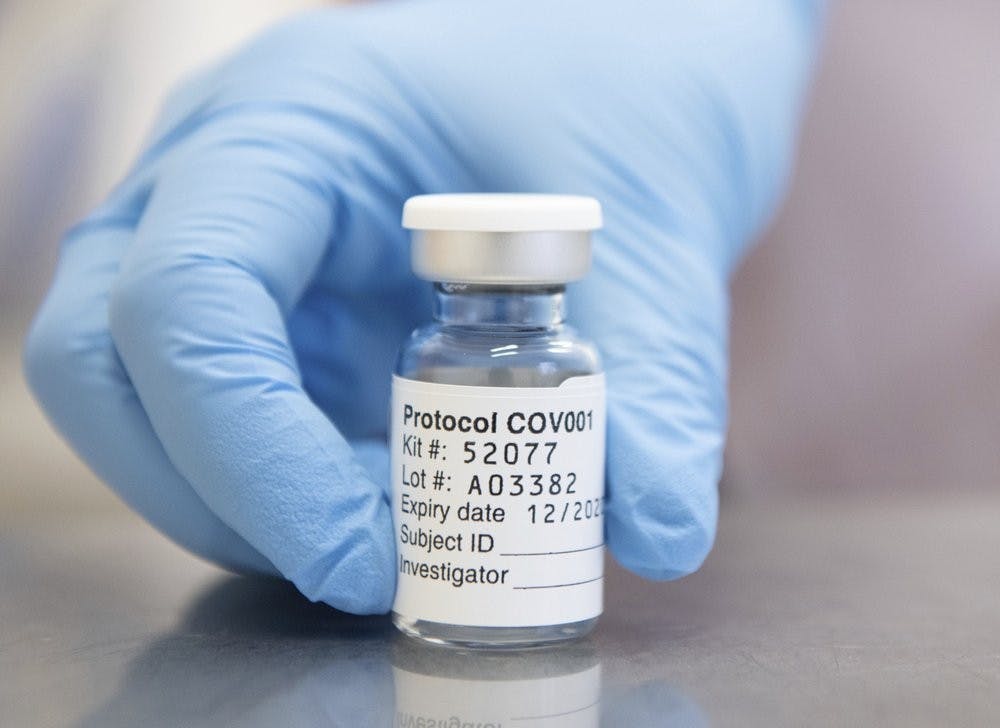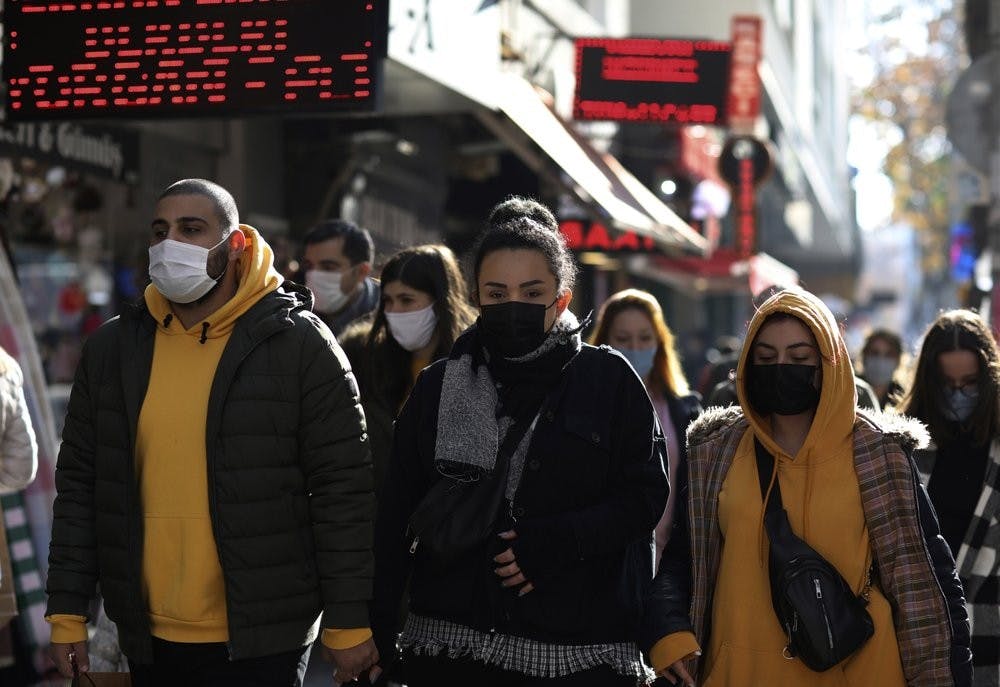Editor’s Note: This listicle is part of a weekly series by The Ball State Daily News summarizing five stories from around the world. All summaries are based on stories published by The Associated Press.
Moderna announced it will apply for emergency use of its COVID-19 vaccine, Turkey resumed reporting all of its positive COVID-19 cases, Britain’s foreign minister said Brexit trade talks are in their last week, Russia is under new pressure to explain Alexei Navalny's August 2020 poisoning and the UK asks its medicines regulator to investigate the AstraZeneca-Oxford coronavirus vaccine.

Moderna asking US, European regulators to OK its virus shots
Moderna Inc. said it would ask U.S. and European regulators Monday to allow emergency use of its COVID-19 vaccine as new study results confirm the shots offer strong protection — ramping up the race to begin limited vaccinations as the coronavirus rampage worsens. Multiple vaccine candidates must succeed for the world to stamp out the pandemic, which has been on the upswing in the U.S. and Europe.Since first emerging nearly a year ago in China, the virus has killed more than 1.4 million people worldwide. Moderna is just behind Pfizer and its German partner BioNTech in seeking to begin vaccinations in the U.S. in December. Across the Atlantic, British regulators also are assessing the Pfizer shot and another from AstraZeneca.

FILE - In this Thursday, Nov. 12, 2020 file photo, commuters wearing masks to help protect against the spread of coronavirus, travel in a bus in Ankara, Turkey. When Turkey changed the way it reports daily COVID-19 infections, the country jumped from being one of the least-affected countries in Europe to one of the worst-hit. (AP Photo/Burhan Ozbilici, File)
Turkey's new virus figures confirm experts' worse fears
When Turkey changed the way it reports daily COVID-19 infections, it confirmed what medical groups and opposition parties have long suspected — that the country is faced with an alarming surge of cases that is fast exhausting the Turkish health system. In an about-face, President Recep Tayyip Erdogan’s government this week resumed reporting all positive coronavirus tests — not just the number of patients being treated for symptoms — pushing the number of daily cases to above 30,000. With the new data, the country jumped from being one of the least-affected countries in Europe to one of the worst-hit.

UK says Brexit trade talks with EU are in their 'last week'
Britain’s foreign minister said Sunday there is only about a week left for the U.K. and the European Union to strike a post-Brexit trade deal, with fishing rights the major obstacle to an agreement. As talks continued between the two sides in London, Foreign Secretary Dominic Raab said “I think we are into the last week or so of substantive negotiations.” The U.K. left the EU early this year, but remained part of the 27-nation bloc’s economic embrace during an 11-month transition as the two sides tried to negotiate a new free-trade deal to take effect Jan. 1. Talks have already slipped past the mid-November date long set as a deadline for agreement to be reached if it is to be approved by lawmakers in Britain and the EU before year’s end.

Russia under renewed pressure to explain Navalny poisoning
Russia came under renewed pressure Monday to explain the nerve agent attack on opposition figure Alexei Navalny as the annual meeting of the global chemical weapons watchdog got underway amid measures aimed at reining in the spread of coronavirus. Navalny fell ill on Aug. 20 during a domestic flight in Russia, and was flown to Germany for treatment two days later. His allies accused the Kremlin of poisoning its fiercest opponent. Tests carried out by labs in Germany, France and Sweden and by the Organization for the Prohibition of Chemical Weapons established that Navalny was exposed to a Soviet-era Novichok nerve agent.

UK asks regulator to assess AZ-Oxford vaccine amid questions
The British government said Friday it has formally asked the country’s medicines regulator to assess whether a coronavirus vaccine developed by AstraZeneca and Oxford University should be authorized for use. The step comes amid questions about preliminary results from trials of the jab, after the company and the university acknowledged that the most encouraging part of their findings stemmed from a dosing error. U.K. Health Secretary Matt Hancock said he had asked the Medicines and Healthcare Products Regulatory Agency to determine whether the vaccine “meets rigorous safety standards.”





